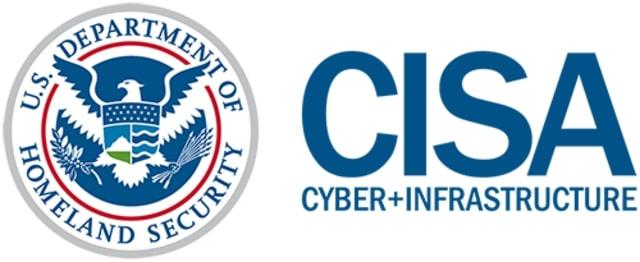Don’t take the CISA ‘Russia’ narrative on blind faith
Given its recent behavior, would you trust anything the CDC now says on COVID policy? The FDA on COVID vaccines and therapeutics? NIH on COVID origins and protocols? How about the FBI on Trump-Russia collusion or domestic terrorism? These agencies earned our distrust. Let’s not forget another major player, the Cybersecurity and Infrastructure Security Agency. As reported by M.D. Kittle in the Federalist last month:
A report released last fall by the House Judiciary Committee and the Select Subcommittee on the Weaponization of the Federal Government details just how CISA ‘Colluded With Big Tech And ‘Disinformation’ Partners To Censor Americans.’
‘Although the investigation is ongoing, information obtained to date has revealed that the Cybersecurity and Infrastructure Security Agency (CISA)—an upstart agency within the Department of Homeland Security (DHS)—has facilitated the censorship of Americans directly and through third-party intermediaries,’ the congressional report states.
The report goes on to assert that the shadowy agency has ‘metastasized into the nerve center of the federal government’s domestic surveillance and censorship operations on social media.’
Launched in 2018, CISA was supposed to be ‘an ancillary agency designed to protect ‘critical infrastructure’ and guard against cybersecurity threats,’ the report notes. By 2020, the agency was ‘routinely’ targeting what CISA officials claimed to be ‘disinformation’ on social media. A year later, the agency had established a formal team devoted to what it decided was ‘misinformation,’ ‘disinformation,’ and ‘malinformation,’ the latter of which CISA defines as ‘information based on fact, but used out of context to mislead, harm, or manipulate.’ In other words, factual information that is problematic to the Biden regime.
It continues with this:
Leaked documents obtained by The Intercept show that Microsoft executive and former DHS official Matt Masterson texted CISA director Jen Easterly in February 2022, saying ‘Platforms have got to get comfortable with gov’t. It’s really interesting how hesitant they remain.’
More details at the Federalist link reveal how these platforms have in time grown to be more “comfortable.” Which brings us to the latest, from Newsmax (well, really from Thomson/Reuters, so, despite appearances, not necessarily Newsmax’s own view):
The U.S. Cybersecurity and Infrastructure Security Agency said Russian government-backed hackers have used their access to Microsoft's email system to steal correspondence between officials and the tech giant, an emergency directive by the U.S. watchdog released on Thursday showed.

We know this from…CISA and Microsoft. And just to make it look real, throw in some lame blame on Microsoft, an excuse for both to meddle even more:
That disclosure, which set alarm bells ringing across the cybersecurity industry, was followed just last week by a report from the U.S. Cyber Safety Review Board which said that a separate hack — blamed on China — had been preventable, faulting the company for cybersecurity lapses and a deliberate lack of transparency.
CISA declined to name agencies that might have been affected. Microsoft said in an email that it was ‘working with our customers to help them investigate and mitigate. This includes working with CISA on an emergency directive to provide guidance to government agencies.’
Given CISA is the “nerve center” of domestic censorship and Microsoft a compliant player, I wouldn’t take anything they say on blind faith. We watched for years as the FBI, the CIA, and their puppet the MSM over-hyped the “Russia” narrative, whether to deflect from Hillary’s emails or her unfavorable election results, to Get Trump, or to push for Ukraine funding and possibly even war (by proxy?) with Russia. I don’t think they’ve let go of this narrative just yet, as they may still have devious uses for it. Expect more of these stories, at least up until the November election.
There’s an old Russian saying the West has co-opted: доверяй, но проверяй (doveryai, no proveryai), “Trust, but verify,” which, if you understand Russian wit, really means “don’t trust anything, verify everything.” Give CISA the benefit of our distrust.

W.A. Eliot is a pseudonym.
Image: Public domain.
FOLLOW US ON
Recent Articles
- New York Greenlights Quarantine Camps
- Reality Check for Democrats
- A MAGA Siege of the Democrats’ Deep State
- Why Incel and 4B Culture Matter
- Defending Donald Trump: A Response to Jeffrey Goldberg and The Atlantic on the Signal Leak
- Are Judges Complicit in Lawfare?
- Deep Dive: The Signal Chat Leak
- Mark Steyn’s Reversal of Fortune
- Where We Need Musk’s Chainsaw the Most
- Trump Is Not Destroying the Constitution, but Restoring It
Blog Posts
- Knife control comes to the U.K.: Prime Minister Starmer bans Ninja swords
- This Tuesday, Wisconsonites must vote for Brad Schimel for the State Supreme Court
- Was Vietnam worth the cost?
- Democrats should get a clue from the Palestinians who are now marching against Hamas
- Trump takes on Fauxahontas's brainchild
- Consumer Sentiment Survey: This too shall pass
- If they only had knife control....
- Newsom and Walz struggle to appear normal
- Anti-Trump lawfare: yes, it's a conspiracy
- Criminal attack? You're on your own.
- Amid disaster, watch Bangkok clean up and rebuild
- Katherine Maher shoots herself, and NPR, in the foot
- A visit to DOGE
- You just might be a Democrat if ...
- Yahoo Finance writer says Trump’s tariffs will see America driving Cuban-style antique cars






